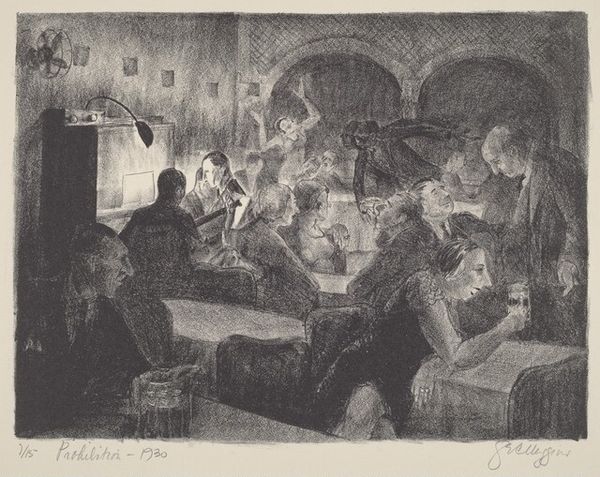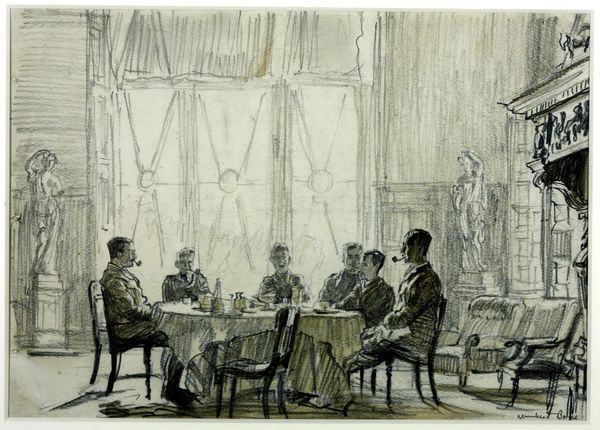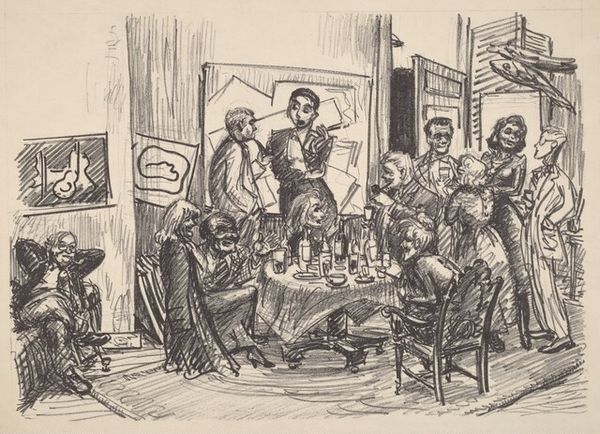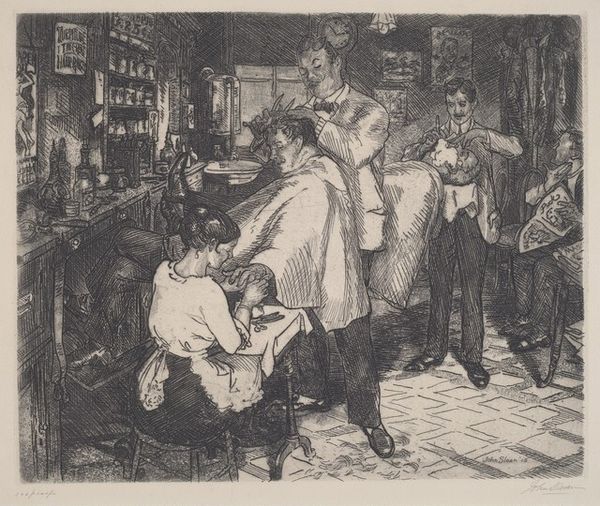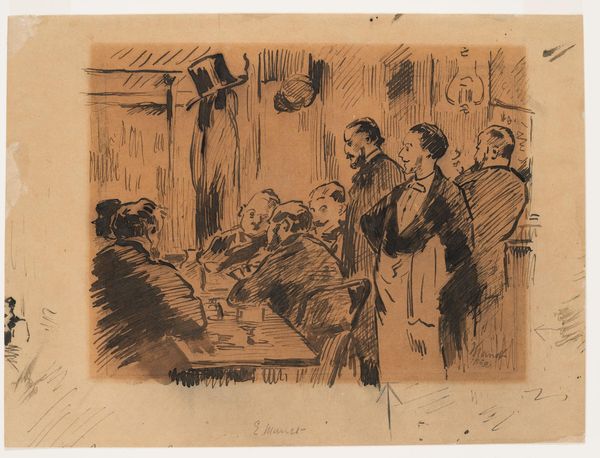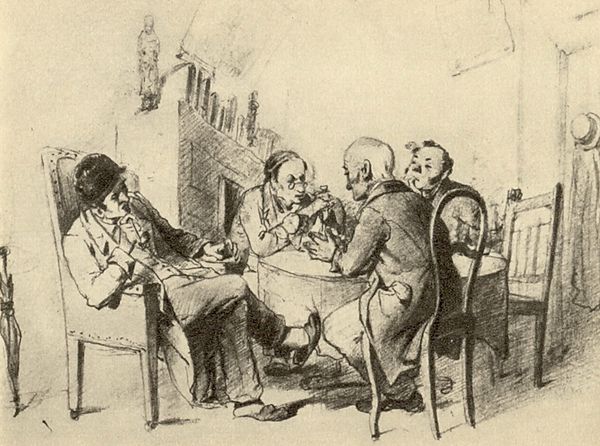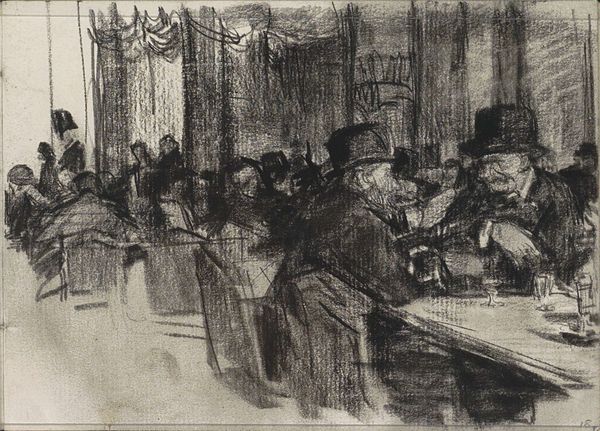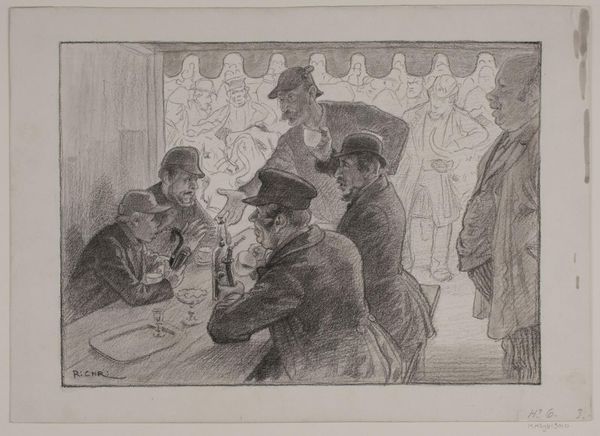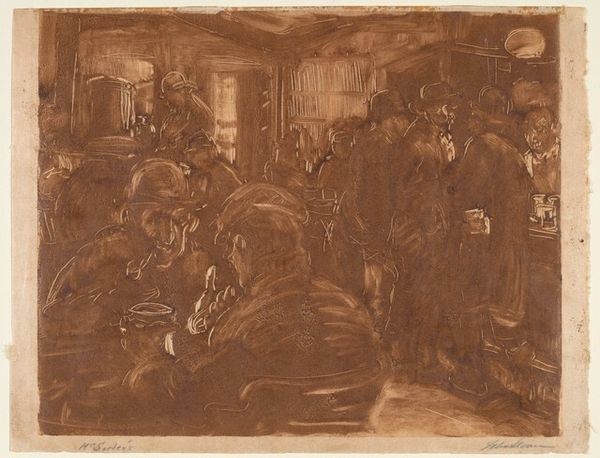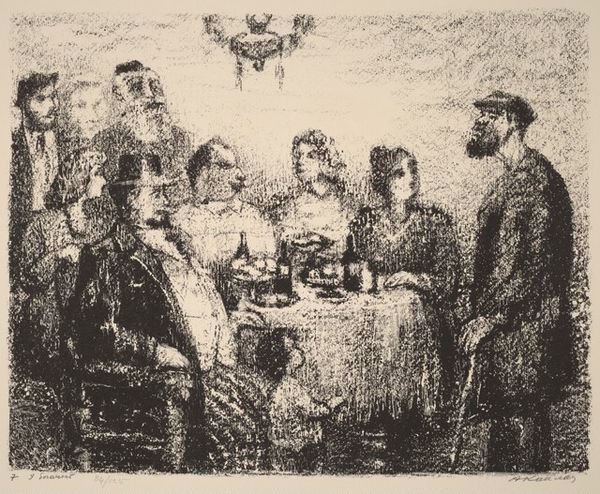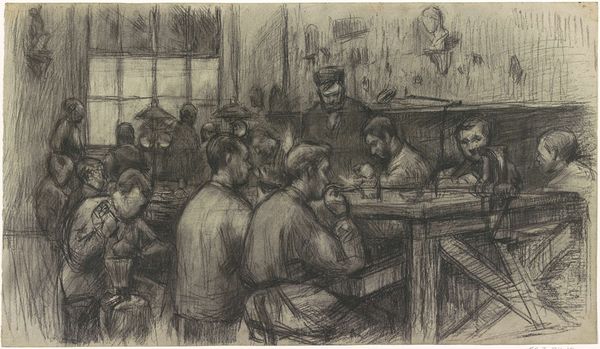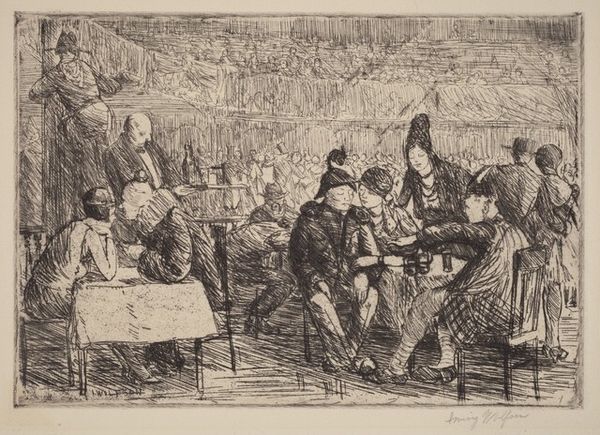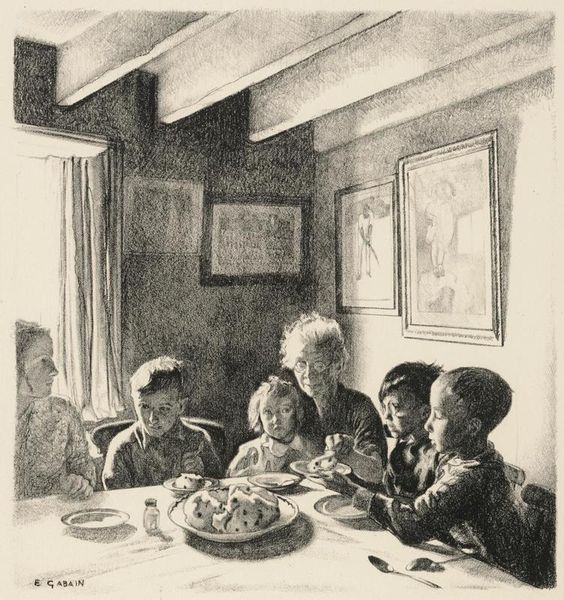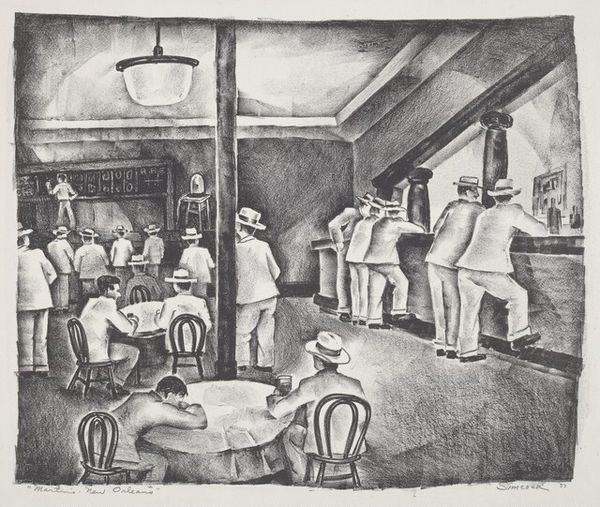
Dimensions: 198 × 267 mm (primary support); 261 × 335 mm (secondary support)
Copyright: Public Domain
Curator: Adolph Menzel's "The Card Game," created around 1899, offers a glimpse into a bygone era. It's currently held at The Art Institute of Chicago. What's your immediate reaction to this work? Editor: Well, right away, I'm struck by this atmospheric density; it's almost dreamlike. The figures emerge from a kind of hazy twilight, as if the whole scene might dissolve at any moment. The muted tones certainly contribute to a contemplative mood. Curator: Absolutely, and the use of pencil, chalk, graphite, and charcoal on paper creates a wonderful textural effect, almost a buzzing quality. I’m particularly fascinated by Menzel's choice of such ordinary subject matter and imbuing it with a feeling of significance and perhaps the anxieties and thrills of social gathering. What strikes me is the way the scene suggests so much despite seeming so simple on the surface. Editor: This casual leisure setting—it's deceptively layered. Who has the privilege to even enjoy leisurely activities such as cards? Note that the economic disparity isn't foregrounded in the image, but it certainly underpins its representation. Also, Menzel’s ability to capture subtle expressions hints at something beneath the surface: strained relationships, competition. Do we consider those elements as commentary, endorsement, or critique? Curator: It's allusive, isn't it? We see figures leaning in, intent; their gazes sharply focused around the card game at the very centre. Yet the faces on those that we see remain largely enigmatic. We find ourselves asking if Menzel meant for it to be this way? Editor: It's important to think about where art such as this originates. Is it for consumption by the elite? The accessibility, the meaning, even the materials signify more than simply the scene represented here. Curator: Good point. And what do you think he wants to suggest through that interplay of light and shadow? Editor: The shadows certainly highlight the class division that existed. It can act as an indictment, can it not? Curator: You're right, absolutely. On a personal level, this piece really evokes a sense of fleeting moments, capturing a sense of ephemerality with the everyday. It reminds me that history is so rarely only the domain of great affairs, grand figures or momentous incidents, as the card game becomes another symbol that helps explore issues of historical realities or tensions. Editor: Precisely, these quiet slices of life become intensely potent, holding their value through the narrative of change.
Comments
No comments
Be the first to comment and join the conversation on the ultimate creative platform.
